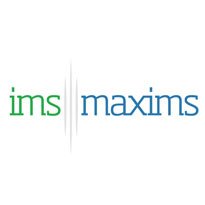IMS Maxims is working on a cloud-based electronic health record for patients that will be supplemented by a number of mobile apps.
Project da Vinci, which is at the “advanced conceptual stage”, will aim to give patients ownership and responsibility for their health record, potentially removing the need for hospitals to store such information on their own systems.
Patients will grant permission to clinicians to view their record, and clinicians will be able to access the information through the da Vinci gateway on mobile devices such as iPads or iPhones.
Shane Tickell, chief executive officer of IMS Maxims, told eHealth Insider that the concept revolves around “increasing patient involvement in their own care record.”
“Patients will go through different periods of their life with different needs and requirements for care. We want to ensure this data is available to the patient for life to, whoever they decide they would like to share their record with, be it the doctor, carer or family.
“One of the key drivers of this project has been that lots of the clinicians that we have worked with have mentioned that they are desperate for patient information to be available to them by mobile,” he said.
The da Vinci initiative will not require a large-scale information system and is viewed by the company as a complementary EHR to its current MAXIMS products. Tickell admitted that initial uptake might be slow.
The EHR, which will be stored in a cloud of the patient’s choice, will interact and be driven by third-party developed apps that will collect specific information on the patient, such as a patient’s medical history and vital signs.
Clinicians can treat patients and record the findings on one of the apps with the information securely stored in the patient’s cloud health record. However, the hospital will keep a copy of what the clinician has entered for research and reporting purposes.
The company is focussing on the deployment of the da Vinci appliance and the integration services that surround it. It hopes to implement a simple revenue model that will offer da Vinci free to patients but charge providers of care via a pay-as-you-go model.
IMS Maxims believes that the appliance will allow hospitals to be run more like “hotels” focussing on appointments and beds, rather than trying to integrate disparate clinical systems.
Paul Cooper, research and development director at the company, told EHI that the product will provide benefits to both patients and clinicians and is optimistic that it will improve the problem the NHS currently faces of “sharing information.”
“We have long spoken about silos of information in the NHS and the NHS has looked at solutions but they haven’t worked.
"If the NHS can’t manage patient records then give the record to the patient, even if the idea is just for the ‘Facebook’ generation and not for every patient,” he said.
The company is currently inviting feedback on the idea and is actively seeking partners – care providers, insurance companies, commissioners and patient groups. It hopes to launch da Vinci in early 2013.

